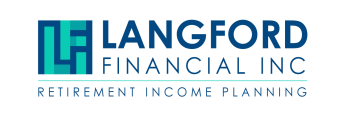Recently the Federal government made changes to the capital gains inclusion rate for Canadians. The inclusion rates were increased from 50% to 66.67%. For personal capital gains, the first $250,000, the inclusion rates remain at 50%; however, for capital gains over $250,000, the inclusion rate is now 66.67%. Corporately, there is no break for the first $250,000 of capital gains, as corporate capital gains are now subject to the inclusion rate of 66.67% from the first dollar.
While the current government said that, “Only 0.13 per cent of Canadians with an average income of $1.4 million are expected to pay more personal income tax on their capital gains...” However, the reality is that capital gains affect most Canadians on the disposition of assets. If you have any investments, a second property or a business, capital gains taxes will affect you.
Capital gains arise when there is a “deemed disposition" of assets. This can result from selling property, gifting property or changing the ownership of property. There are also situations that can trigger capital gains even if the property is not sold, such as
- death of an owner
- dividing assets in a divorce
- adding an adult child as joint owner to property with their parents
- the taxpayer emigrates from Canada
- when a beneficiary of a trust dies or when a trust reached its 21st anniversary
- More specifically, capital gains apply to many common assets, such as
- Second Property – rental properties, vacation properties
- Investments – Non-Registered, Commodities
- Art, Jewellery, Collectables
One small window of sunlight is that our principal residence is not subject to capital gains.
Business owners are hit particularly hard by the increase in the capital gains inclusion rate, as they are now subject to the higher 66.67% capital gains inclusion rate on every dollar of capital gains.
Many business owners build up funds within their corporations because they are taxed at a lower rate than if the funds are held personally. Therefore, holding funds within a corporation is an attractive place to store funds for later, such as for retirement. Imagine a business owner or a dentist with large amount of funds saved in their corporation now being subject to 66.67% capital gains, and the hit is significant.
What can we do from a financial planning perspective to manage capital gains taxes?
…Enter the Liquidity Contract
The Liquidity Contract is a tax efficient way of providing funds to pay the Capital Gains Tax in the future (regardless of it is based on a 50% or 67% inclusion rate). It provides the financial liquidity when it is needed.
The liquidity contract is a way to pre-fund future capital gains and in some cases defer or even cover your capital gains taxes down the road for you.
By investing funds today in a tax-sheltered financial instrument, your funds can grow tax sheltered over time. You can then use those funds to pay future capital gains taxes with tax advantaged dollars, instead of with tax disadvantaged dollars.
The question is do you want to pay pennies on the dollar or dollar for dollar?
One of the best ways to determine how capital gains can impact you, is to have a comprehensive financial plan built specifically for your financial situation. This will analyze the various options available to you and develop a tax efficient strategy to deal with future capital gains taxes.
If you, your business, or your trust holds assets with significant accrued gains, reach out to your tax advisor for assistance in analyzing your options. There are other tax considerations and consequences that need to discussed with your tax professional before taking any action, to determine what is best for you and your financial situation.
To discuss your particular situation in more detail you can contact Ken directly.







